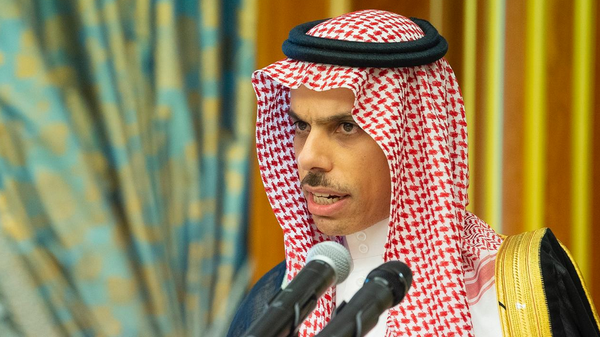More statements about ending the blockade despite previous comments made by UAE officials saying the crisis is not a priority.
Once again, Saudi Arabia’s foreign minister, Prince Faisal bin Farhan Al Saud, has said that his country is seeking ways to resolve the three-year-long Gulf crisis.
Al Saud’s statements were made during a virtual interview on the sidelines of the G20 Leaders Summit held in Riyadh, repeated similar claims made earlier in October.
“We continue to be willing to engage with our Qatari brothers, and we hope that they are as committed to that engagement,” said bin Farhan in October during a virtual event hosted by the Washington Institute for Near East Policy, a US based think-tank.
However, the Saudi diplomat added that what he described as key “security concerns” must be addressed in order to resolve the ongoing crisis.
While Al Saud did not elaborate on the concerns, Riyadh announced its blockade of Doha on the bases of Qatar’s alleged sponsorring of terrorism, which Saudi Arabia has consistently failed to prove.
Read also: ‘No chances’ of the blockade ending soon says UAE official after hopes of possible breakthrough
Despite numerous mediating efforts by the Trump Administration and Kuwait, in addition to the positive Saudi statements, the UAE has stated that there are ‘no chances’ of ending the blockade on Qatar.
Earlier in November, Abu Dhabi’s Ambassador to the US, Yousef Al Otaiba, told Israeli outlet, Channel 12, that Doha must comply with the list of demands given in 2017 in order for the blockade to be lifted.
“I don’t think it gets resolved anytime soon simply because I don’t think there has been any introspection,” said Al Otaiba in response to a question about resolving the Gulf Crisis, accusing Qatar of “playing the victim”.
Moreover, in a recent statement by US National Security Advisor, Robert O’Brien, he expressed his hope that Saudi and Bahraini air space would open for Qatar Airways flights within “70 days”.
But as the Trump Administration is set to leave the White House in January it’s not clear how much leverage the outgoing US President still has on regional powers, experts anticipate more efforts to be made once Joe Biden officially takes office.
Follow Doha News on Twitter, Instagram, Facebook and Youtube
